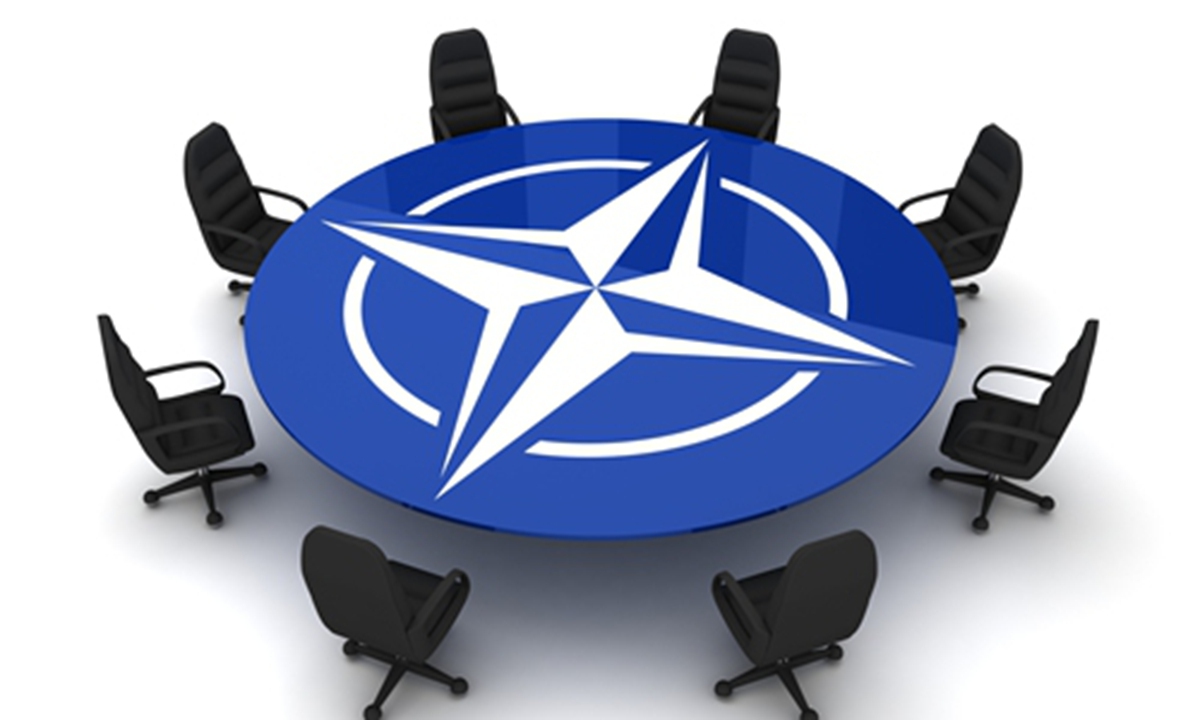
NATO. Photo: IC
The death has been announced of a 73-year-old who has passed away after enduring many years of declining fitness and increasing infirmity.
Born on April 4, 1949, NATO was the child of an American father and a European mother. Conception took place in the United States during the preceding year, but as the decades progressed, NATO eventually became part of a large extended family whose siblings came to spread across 30 countries.
The parents, who met and fell in love in the aftermath of World War II, named their offspring the North Atlantic Treaty Organization, a title which hinted at their ambitions for the child, though it is questionable whether the youngster ever achieved the goals set by the parents.
It started out in life with much optimism as a "defensive alliance," but during its formative years it became increasingly clear that the war that it kept telling people was such a threat was never actually going to happen. The Cold War never became a "hot" war and, lacking a true purpose, NATO's mental health began to suffer - it became plagued by chronic anxiety and paranoia, seemingly unable to understand why the catastrophes it predicted never took place. It must have been such a disappointment to the parents, though they continued to indulge their spoiled child's fantasies.
Tragically, as it grew older, NATO appeared to suffer a kind of mid-life crisis and tried to reinvent itself as some sort of global policeman, declaring in a new mission statement that it intended to find new work in crisis management. However, one particular venture in that field, originally planned as a short family holiday to Afghanistan, ended up lasting 20 years. And when NATO eventually went home, it left behind a far greater crisis than had existed before its involvement. There were also family squabbles: war in Syria was cause for further concern for NATO's wellbeing when one member, Turkey, became a "threat" to European security because of a crisis created by another, the United States.
NATO's rise from humble roots to become the self-styled security police force for 600 million people took a severe personal toll. In addition to the paranoia, it began to suffer from delusions of grandeur and developed obesity problems, becoming bloated with more and more countries. It became prone to temper tantrums: it was occasionally subject to outbursts of violence far away from the neighbourhoods where it grew up, like Libya. Some close acquaintances, even some family members, urged caution and one - France - was the first to make the diagnosis that NATO was actually "brain dead". This assessment turned out to be accurate and marked the point at which NATO's decline seemed to be irreversible. In fact, NATO's enthusiasm for expansion had developed an addiction, a debilitating habit which sadly had been encouraged by its American father, aided by ill-informed members of the Senate in Washington which allowed it - encouraged it - to acquire new members.
However, far from helping it to manage any crisis, this addiction was actually creating crises, the most recent example being in Ukraine where the threat of continued eastwards expansion was declared to be one of the triggers for the conflict with Russia. NATO had been warned for many years that its impetuous behaviour would one day lead to trouble, but like many addicts it seemed unable to stop itself. What had started as a mild form of enthusiasm developed into a mania for a drug for which there seemed to be no antidote. Like many addicts, it could only be helped if it wished to help itself, and sadly that was never really the case.
It had been in denial for some time, and like many addicts, NATO lied to get its own way. Although nothing was put in writing, it repeatedly assured Russia that it had no intentions of expanding eastwards, not even "by one inch." The consequences of failing to recognize this duplicity are seen today in Ukraine.
At this stage, the cause of NATO's death has yet to be confirmed, but it is likely to be complications caused as a result of irrelevancy and misuse. NATO is survived by a world that is tiring of organisations that claim to be firstly a defensive alliance, then a crisis management organisation, when the truth is that it is really a vehicle for projecting American hegemony into the world. It is a mere tool (with an American general always at its head) for delivering not peace, or stability, but American foreign policy, which more often than not involves neither peace nor stability. Because of its difficulty in recognizing the truth of a situation, NATO itself may not even realize it is dead. As the saying goes - it's dead, but it won't lie down.
The author is a journalist and lecturer living in Britain. opinion@globaltimes.com.cn




